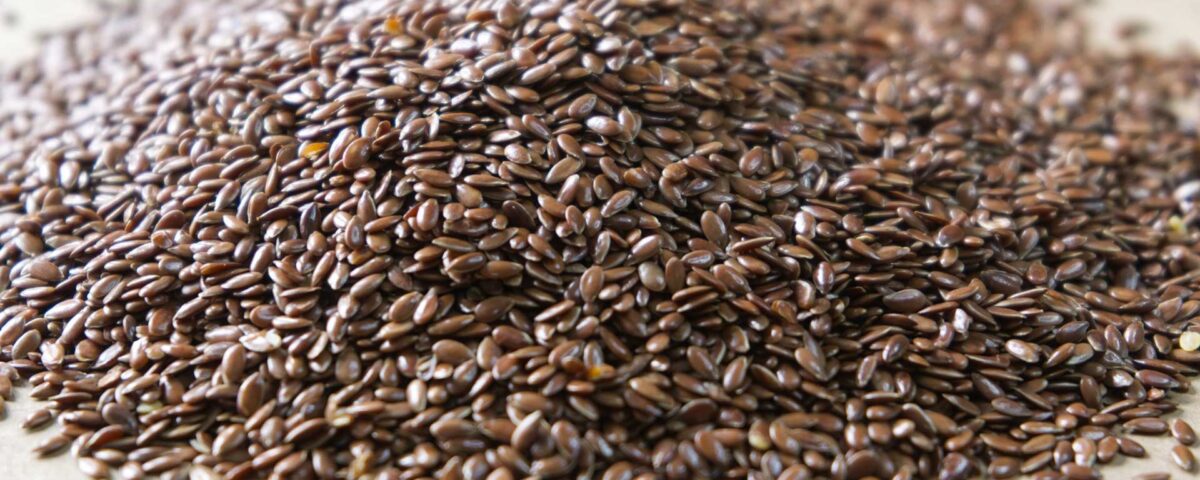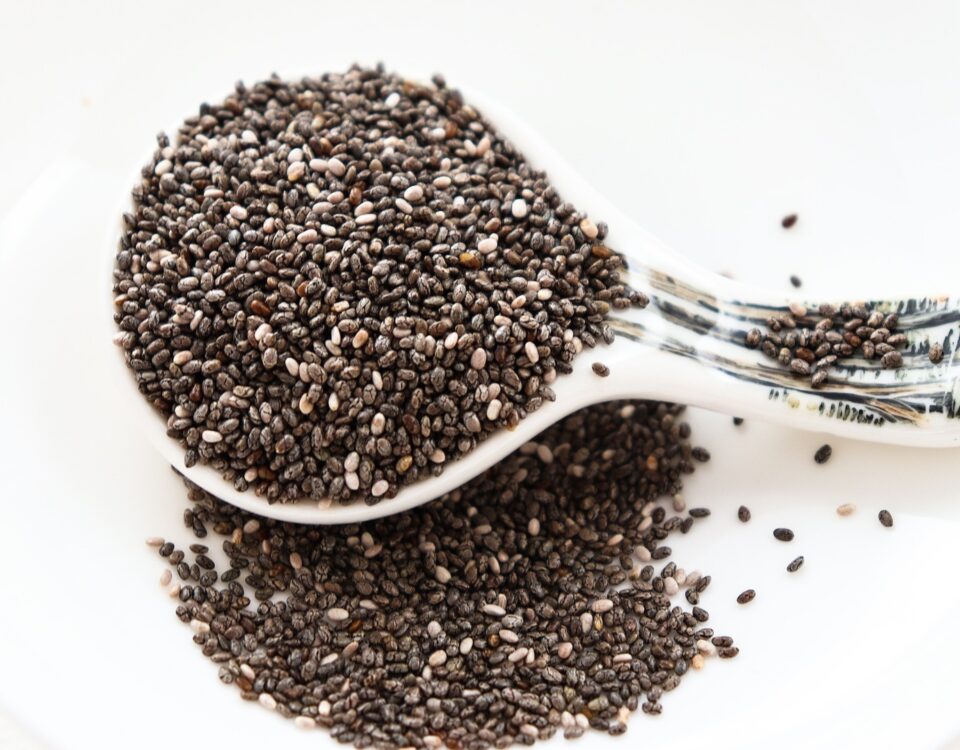Flax seeds, also termed linseeds, are small, golden, or brown-colored seeds. They are a rich source of many nutrients, including fiber, protein, healthy fats, vitamins, and minerals.
Flax seeds are particularly known for their high content of alpha-linolenic acid (ALA), which is a type of omega-3 fatty acid. Omega-3 fatty acids are important for many functions in the body, including brain and heart health.
In addition to their nutritional benefits, flax seeds are also known for their potential health benefits. Some studies suggest that consuming flax seeds regularly may help to lower cholesterol levels, reduce inflammation, and improve digestive health.
The fiber in Flex seeds
Flax seeds are a good source of dietary fiber, which is important for maintaining digestive health and preventing constipation. In fact, just one tablespoon of ground flax seeds contains around 2 grams of fiber.
Flax seeds contain both soluble and insoluble fiber. Soluble fiber absorbs water and forms a gel-like substance in the digestive tract, which helps to slow down the digestion process and can help to lower cholesterol levels. Insoluble fiber adds bulk to the stool and helps to move it through the digestive system.
Essential fatty acids in flax seeds
Flax seeds are a rich source of essential fatty acids, particularly alpha-linolenic acid (ALA), which is an omega-3 fatty acid. Omega-3 fatty acids are essential nutrients that the body cannot produce on its own and must be obtained from the diet.
In addition to ALA, flax seeds also contain linoleic acid (LA), which is an omega-6 fatty acid. Both of these essential fatty acids are important for maintaining good health, and the balance between omega-3 and omega-6 fatty acids is thought to be important for optimal health.
Omega-3 fatty acids are particularly important for brain and heart health. ALA can be converted into other omega-3 fatty acids, such as eicosapentaenoic acid (EPA) and docosahexaenoic acid (DHA), which are important for brain function, reducing inflammation, and maintaining heart health.
It’s worth noting that while flax seeds are a good source of ALA, the conversion of ALA to EPA and DHA is limited in the body. For this reason, it’s still important to consume other sources of EPA and DHA, such as oily fish or fish oil supplements, particularly for those who do not consume fish in their diet.
Protein/ Amino acids in Flax seeds:
Flax seeds contain all nine essential amino acids, which are the building blocks of protein that the body cannot produce on its own and must obtain from the diet. These essential amino acids include:
Histidine
Isoleucine
Leucine
Lysine
Methionine
Phenylalanine
Threonine
Tryptophan
Valine
In addition to these essential amino acids, flax seeds also contain non-essential amino acids, which the body can produce on its own. These include alanine, arginine, aspartic acid, cysteine, glutamic acid, glycine, proline, serine, and tyrosine.
While flax seeds are not as high in protein as some other plant-based sources, they still provide a good amount of protein relative to their small size. In fact, one tablespoon of ground flax seeds contains around 1.3 grams of protein
B Vitamins in Flax seeds
Flax seeds are a good source of several B vitamins, including thiamine (B1), riboflavin (B2), niacin (B3), pantothenic acid (B5), and vitamin B6. These vitamins play important roles in the body, including energy metabolism, nerve function, and the production of red blood cells.
Here’s a breakdown of the B vitamins found in flax seeds:
Thiamine (B1): Flax seeds contain a small amount of thiamine, which is important for energy metabolism and nerve function.
Riboflavin (B2): Flax seeds are a good source of riboflavin, which is important for energy production and maintaining healthy skin, eyes, and nervous systems.
Niacin (B3): Flax seeds are a good source of niacin, which is important for energy metabolism, nervous system function, and the production of DNA.
Pantothenic acid (B5): Flax seeds contain a small amount of pantothenic acid, which is important for energy metabolism and the production of hormones.
Vitamin B6: Flax seeds are a good source of vitamin B6, which is important for brain function, immune system function, and the production of red blood cells.
Incorporating flax seeds into your diet can be a good way to boost your intake of these important B vitamins. Flax seeds can be added to smoothies, oatmeal, yogurt, or baked goods to increase their nutritional content.
Minerals in flax seeds
Flax seeds are a good source of important minerals, including:
Magnesium: Flax seeds are a good source of magnesium, which is important for maintaining healthy bones, regulating blood pressure, and supporting nerve and muscle function.
Manganese: Flax seeds are also a good source of manganese, which is important for bone health, wound healing, and metabolism.
Phosphorus: Flax seeds are a good source of phosphorus, which is important for bone and teeth health, and are also involved in energy metabolism and cell signaling.
Copper: Flax seeds contain a small amount of copper, which is important for the production of red blood cells and the maintenance of healthy bones and connective tissue.
Iron: Flax seeds contain a small amount of iron, which is important for the production of red blood cells and for carrying oxygen throughout the body.
Zinc: Flax seeds contain a small amount of zinc, which is important for immune function, wound healing, and DNA synthesis.
Selenium: Flax seeds are a good source of selenium, which is important for immune function, thyroid function, and protecting cells from oxidative damage.
Incorporating flax seeds into your diet can be a good way to boost your intake of these important minerals. Flax seeds can be added to smoothies, oatmeal, yogurt, or baked goods to increase their nutritional content.
Flax seeds and weight loss
Flax seeds may be beneficial for weight loss due to their high fiber and protein content, as well as their ability to promote feelings of fullness and reduce appetite.
Fiber is a type of carbohydrate that the body cannot digest, which means it adds bulk to the diet without adding calories. Flax seeds are an excellent source of both soluble and insoluble fiber, which can help slow digestion, promote feelings of fullness, and reduce overall calorie intake. In fact, one tablespoon of ground flax seeds contains about 2 grams of fiber.
In addition to their fiber content, flax seeds are also a good source of protein, which can also help promote feelings of fullness and reduce appetite. One tablespoon of ground flax seeds contains about 1.3 grams of protein.
Furthermore, flax seeds contain compounds called lignans, which may have anti-obesity effects. Some studies have suggested that lignans may help reduce body weight and improve insulin sensitivity in overweight individuals.
Overall, incorporating flax seeds into a healthy, balanced diet may be beneficial for weight loss and weight management. However, it’s important to note that flax seeds are relatively high in calories, so they should be consumed in moderation as part of a well-rounded diet. It’s also important to drink plenty of water when consuming flax seeds to help prevent digestive issues.
Flax seeds in blood pressure
Flax seeds may be beneficial for blood pressure control due to their high content of omega-3 fatty acids, fiber, and lignans.
Omega-3 fatty acids are a type of healthy fat that can help reduce inflammation, improve blood vessel function, and lower blood pressure. Flax seeds are a rich source of plant-based omega-3 fatty acids called alpha-linolenic acid (ALA). Studies have suggested that consuming ALA-rich foods, such as flax seeds, may help lower blood pressure in individuals with hypertension.
In addition to their omega-3 content, flax seeds are also a good source of fiber, which can help lower blood pressure by reducing cholesterol levels and improving blood vessel function. The lignans found in flax seeds may also have blood pressure-lowering effects by reducing inflammation and improving blood vessel function.
It’s important to note that while flax seeds may be beneficial for blood pressure control, they should not be used as a sole treatment for hypertension. It’s also important to talk to your healthcare provider before making any significant changes to your diet or lifestyle, especially if you have a medical condition or are taking medications.
Per day requirement of flax seeds
There is no specific daily requirement for flax seeds, but most health experts recommend consuming about 1-2 tablespoons of ground flax seeds per day to reap the health benefits.
It’s important to note that flax seeds are high in fiber, which can have digestive effects if consumed in large amounts. Starting with a smaller amount, such as 1 teaspoon per day, and gradually increasing to 1-2 tablespoons over time can help prevent digestive issues.
It’s also important to drink plenty of water when consuming flax seeds to help prevent digestive discomfort and ensure proper hydration.
Overall, incorporating flax seeds into a healthy, balanced diet can be a great way to boost your intake of important nutrients, including fiber, protein, omega-3 fatty acids, and lignans. However, it’s important to consume them in moderation as part of a varied diet that includes a range of nutrient-dense foods.
How to use flax seeds
It’s important to note that flax seeds should be ground before consuming to maximize their nutritional benefits. Whole flax seeds can be difficult for the body to digest, and their nutrients are not as readily available. Ground flax seeds can be stored in an airtight container in the refrigerator for up to a few weeks.






